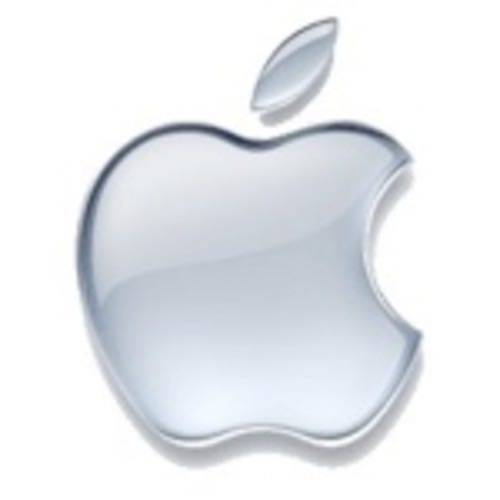
Apple this morning announced a new subscription service for all publishers of content-based apps. It’s the same one we saw with recently-released iPad app “The Daily,” but it’s the previously untold details that are getting people riled up. And riled up they are. Like most things Apple does, today’s announcement has caused waves of reactions from publishers, bloggers and mainstream media alike.
From “Greedy” to “Brilliant, Brazen or Batsh*t Crazy” to “Anti-Competitive“, Apple has been called a lot of things today and we’re here to round up the backlash.
So, What Exactly Did Apple Announce?
The short version is that Apple announced a subscription service for media apps that uses In-App purchases and sets aside a 30% chunk for Apple on each transaction. Apple CEO Steve Jobs broke it down.
“Our philosophy is simple–when Apple brings a new subscriber to the app, Apple earns a 30 percent share; when the publisher brings an existing or new subscriber to the app, the publisher keeps 100 percent and Apple earns nothing,” said Jobs. “All we require is that, if a publisher is making a subscription offer outside of the app, the same (or better) offer be made inside the app, so that customers can easily subscribe with one-click right in the app.”
The Aftershocks of Today’s Announcement
Like most things with Apple, they speak and the world reacts. Today was certainly no exception.
As Engadget’s Paul Miller describes it, “The big trouble stems from the fact that Apple requires anybody offering a subscription service to offer that service for the same price or less through Apple. That means you can still sign up folks through your own methods and get all the cash, but if anybody signs up through your app, Apple gets a 30 percent cut.” According to Miller, subscription-based music service Rhapsody has said it won’t go along with the new service because of this.
RWW Alum Frederic Lardinois asks if Apple is getting too greedy with the 30% cut it’s requiring of publishers, questioning the effect it might have on publishers and content providers.
“If Hulu has to give Apple $2.40 of every $7.99 subscription it sells, can it still make a profit?” asks Lardinois. “Or will Apple’s move force them to raise their prices across the board?”
The effects of the move appear to be wide-reaching, as ComputerWorld’s Gregg Keizer points out that these new rules actually affect Amazon’s Kindle.
Apple spokeswoman Trudy Muller confirmed that those rules apply not only to newspaper and magazine publishers, but also to content sellers like Amazon.com, which offers a Kindle app for the iPhone, iPod Touch and iPad.
To meet Apple’s guidelines, Amazon must remove its “Shop in Kindle Store” link from its Kindle application. That link, which opens the iOS browser and displays Amazon’s Web-based e-bookstore, is currently the easiest way for Kindle app users to purchase new books.
Even the Nieman Journalism Lab has joined in on the Apple-bashing today, pointing out that Apple is “setting itself up as a toll-taker on news org’s’ road to a new business model.”
Meanwhile, mainstream media’s response comes in the form of an article in The Wall Street Journal asking if Apple’s subscription rules are in fact legal.
“Apple Inc.’s new subscription service could draw antitrust scrutiny, according to law professors,” writes the Journal’s Nathan Koppel. According to the article, the antitrust argument hinges on two primary points – whether or not Apple is exerting “anticompetitive pressures on price” and whether Apple is a “dominant player in the market.”
All of this aside, if Apple implements these rules, some fear the worst. New York based entrepreneur and blogger Hank Williams warns that this could be the end for many subscription services on iOS.
“Many types of content businesses dont have 30% of margin to play with. In books, Amazon doesn’t have 30% margins to give to Apple and remain in business. In music, services like Pandora probably don’t even have 5% of margin to play with,” writes Williams. “But Apple is not stupid, so they have certainly run the numbers. And so it seems that they have decided that they now have a platform that is so popular, that the services that can’t afford to pay them 30% are not needed anymore.”
Cause for Concern? Or Simply Hyperbole?
If the reaction in the media today is anything to go by, then there is certainly cause for concern. But is the move enough to put services like Pandora and Amazon Kindle off the platform? When the announcement came over the wire earlier today, ReadWriteWeb’s Marshall Kirkpatrick tweeted that he “would pay 30% of subscription fees for 1 click CCard access to upscale owners of the finest mobile media consumption device in history.”
Scanning over the full, massive thread of coverage on Techmeme, however, either says that there is obviously a big problem here, or we’re all blowing it out of proportion. As TechCrunch’s MG Siegler points out, “to those who have followed tech news for any extended length of time, this is a familiar refrain. Company X changes something, therefore Company X is ‘evil’.” Are we simply reacting true to form? Or has Apple overstepped its boundaries, both legally and in terms of what companies and publishers deem acceptable?

















